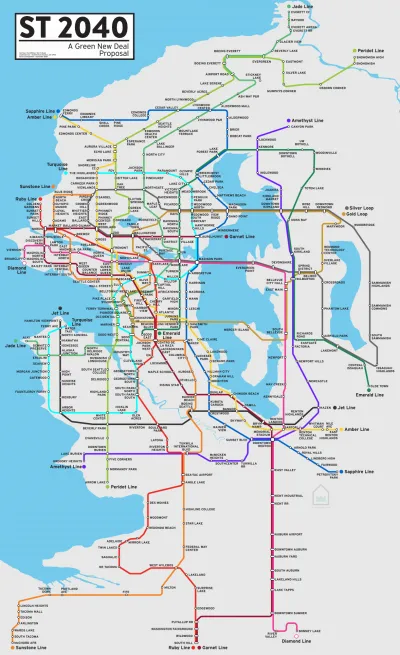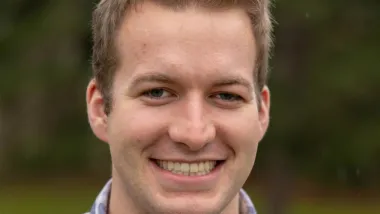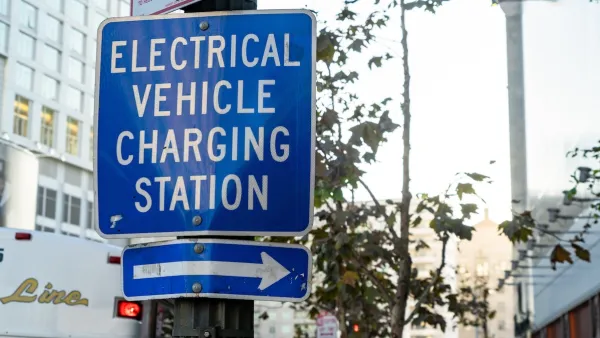In February, climate candidate for Seattle Mayor Andrew Grant Houston and I laid out a vision for the Puget Sound region's transportation future in The Urbanist.

In February, climate candidate for Seattle Mayor Andrew Grant Houston and I laid out a vision for the Puget Sound region's transportation future in The Urbanist. With major hydro-electric power generation, cars are the largest carbon emissions source in Washington State. To meet the state's climate goals, electric cars can help but with the risks of carbon lock-in, it's essential that transit is prioritized.
"With President Biden’s election, Seattle and Washington State have an opportunity to leverage his planned Build Back Better agenda and $2 trillion plan to build modern sustainable infrastructure and an equitable clean energy future. We can build Washington State’s public transit system and create sustainable, well-paying jobs by leveraging the Biden climate plan’s commitment to investing in sustainable transportation."
To achieve this ambitious goal, we need a plan that reaches beyond the Sound Transit 3 plan and prepares the Puget Sound region for an anticipated 1.8 million new residents by 2050. Andrew Grant Houston’s Sustainable Seattle Transit 2040 plan and the broader ST 2040 vision provide a framework to envision such an aggressive investment, enabling the establishment of 15-minute cities in Seattle and throughout the region.
ST 2040:
- Connects job centers and as many cities in the three counties as possible;
- Leaves the system open outside of Seattle to allow local communities to influence the specifics of implementation;
- Ensures every Seattleite is within one mile of a light rail station; and
- Creates a massive vision of a transit system that can be built to prepare the Puget Sound region for tremendous regional growth.
As we noted, Seattle is particularly important in this plan: "Perhaps the most crucial part of the ST 2040 plan is investing in developing the transit system of the economic engine and population center of the Puget Sound Region—Seattle. Seattle is the jobs and housing center for the region, and with Andrews’ vision for a Seattle-specific ST 2040 map, we can develop the city sustainably while adding hundreds of thousands of new residents. This plan could also be primarily paid for by federal investment and a tax on major regional polluters."
While some will call this vision overly ambitious and impossible, we believe it is essential to demonstrate what a truly world-class system could look like—to open the Overton window fully for real transformation that can solve the climate crisis:
"Through significant investment in sustainable public transportation in concert with enabling micromobility options, investment in sustainable housing development, and decarbonizing our ports, Seattle and the Puget Sound Region can lead the just transition to a sustainable economy and future for all."

Analysis: Cybertruck Fatality Rate Far Exceeds That of Ford Pinto
The Tesla Cybertruck was recalled seven times last year.

National Parks Layoffs Will Cause Communities to Lose Billions
Thousands of essential park workers were laid off this week, just before the busy spring break season.

Retro-silient?: America’s First “Eco-burb,” The Woodlands Turns 50
A master-planned community north of Houston offers lessons on green infrastructure and resilient design, but falls short of its founder’s lofty affordability and walkability goals.

Test News Post 1
This is a summary

Analysis: Cybertruck Fatality Rate Far Exceeds That of Ford Pinto
The Tesla Cybertruck was recalled seven times last year.

Test News Headline 46
Test for the image on the front page.
Urban Design for Planners 1: Software Tools
This six-course series explores essential urban design concepts using open source software and equips planners with the tools they need to participate fully in the urban design process.
Planning for Universal Design
Learn the tools for implementing Universal Design in planning regulations.
EMC Planning Group, Inc.
Planetizen
Planetizen
Mpact (formerly Rail~Volution)
Great Falls Development Authority, Inc.
HUDs Office of Policy Development and Research
NYU Wagner Graduate School of Public Service





























